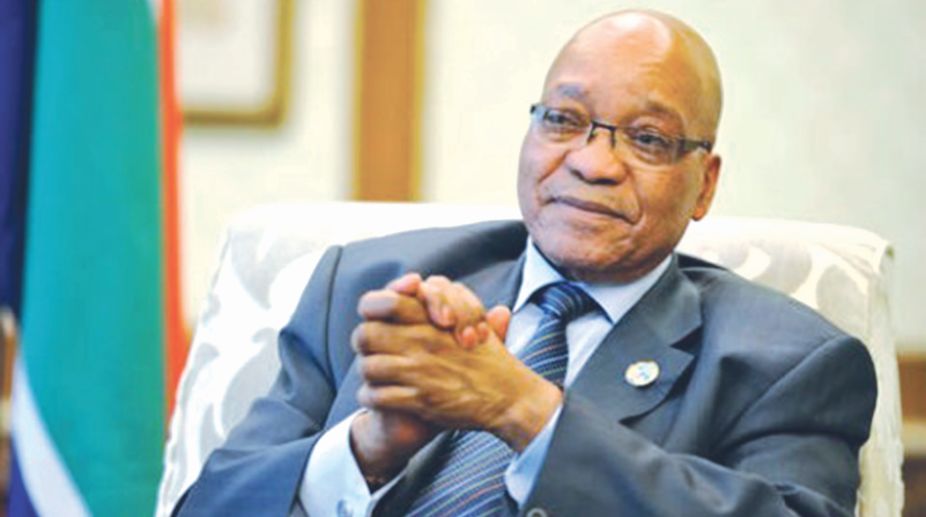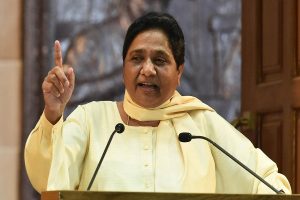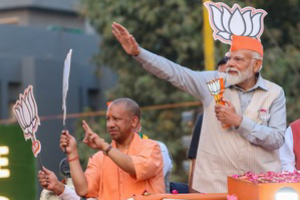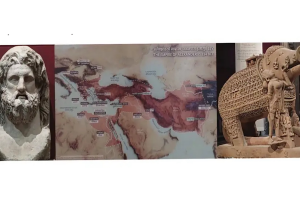Was it a controversial indictment of corruption that led to the resignation of South African President Jacob Zuma on 14 February? Zuma has all along denied any wrongdoing.
Jacob Zuma, one of the colourful compatriots of Nelson Mandela, was elected as the fourth president in May 2009 – that is, since the end of apartheid in 1994. Earlier, Zuma became the president of the African National Congress (ANC) in 2007, which paved the path for him to be the president of South Africa. However, the allegations of corruption and scandals kept haunting Zuma long before he became the leader of ANC and kept chasing him even when he became the president.
Among the allegations was one involving the $5 billion weapons acquisition deal of 1999, when he was the deputy president$20.5 million of tax payers’ money to upgrade his private residence in rural Nkandla. The court ruled that Zuma has to pay back a large amount to the government. While these cases were quashed, they kept coming back to the court.
As Zuma battled these cases, his hold over the ANC was firm and in 2012 he was re-elected president of ANC. And in May 2014, he was re-elected as president of South Africa for the second term. The latest allegation against Zuma was rather unusual. He was accused of having a corrupt relationship with the Indian-born Gupta family. The Guptas apparently interfered in ministerial appointments and obtained lucrative government contracts. Both the Guptas and Zuma have denied these charges.
What is most extraordinary is the struggle for leadership within the ANC that has defined the post-apartheid governments of South Africa. The party continues to ride on the towering reputation of Nelson Mandela. Unfortunately, the party has always put petty politics ahead of the people.
The political landscape is characterised by multi-party parliamentary democracy. But the exclusive dominance of the ANC and the lack of credible opposition have impinged upon the depth and quality of democracy in the country. ANC has refused to reform the current Proportional Representation system that allows the party to dominate the numbers in the 400-seat parliament. In the lower house, the ANC currently has 249 seats. Lack of democratic consolidation has in turn led to failure to promote accountability.
A little investigation into the leadership of ANC reveals that every party vice-president had conspired to oust the president. Whoever got to be president of the party ended up as president of South Africa. The reason being the party charter, which requires the party members in parliament to endorse the party leader to the post of president.
Every time a corruption charge came up, Zuma was threatened with no-confidence motion, engineered by his deputies in the party. But somehow he survived those threats by manipulating the party members in parliament. On 13 February, Cyril Ramaphosa, who became president of ANC in December 2017, asked Jacob Zuma to resign.
At first, he refused but when the parliament was about to move the ninth no-confidence motion, Zuma resigned. Clearly, the struggle for leadership was in full swing. Besides, with the presidential election scheduled in 2019, ANC was getting jittery about Zuma’s unpopularity. To maintain its hold on power, ANC finally decided to oust him despite the risks of a backlash from the ousted leader.
Apart from scandals, the economic recession was responsible for “peoples’ president” Zuma’s undoing. Actually, Zuma oversaw a steady decline of the economy with high unemployment and poor economic growth since assuming the presidency. In 2011, the GDP was the highest at $416 billion. But then, there has been steady shrinkage over the past years and in 2016 it stood at $294.84 billion. Unemployment also rose over the years and currently stands over 26.7 per cent.
Rating agencies have downgraded the country’s bond to junk status. Government debt also rose to 51.6 per cent of the GDP in 2016. The Rand (SA currency) also progressively lost its value during Zuma’s presidency. Analysts say that about $10 billion of tax payers’ money have been stolen since Zuma became president.
President Cyril Ramaphosa (65), one of the richest businessmen of South Africa, will have two clear problems to address. First, to turn around the economy from doldrums. Secondly, to get rid of corruption from ANC and the government, particularly those entrenched vested quarters that were close to Jacob Zuma.
The other challenge that Ramaphosa will have to face is to rebuild trust with the labour organisations that will help him gain votes at the next presidential election. He will also have to keep the current ANC Deputy President David Dabede Mabuza under control and in good humour not to rock the presidential boat.
Leaders in tribe-dominated Africa have a particular psychic trait. Once they get to the top post they tend to become tribal chieftains. They shun the constitution and start ruling for personal gains. Jacob Zuma is an isiZulu. He built his support base in Kwa Zulu-Natal, ANC’s region with the largest membership, and got support from his ethnic community.
It is sad that Zuma, who had served jail term with Nelson Mandela in Robben Island, did not live up to the ideals of Mandela. Mandela’s “Rainbow Nation” is still largely divided between the whites and the blacks although apartheid is defeated.
Corruption at the highest level in most countries has spawned because of lack of true democratic institutions. Be it in the ruling party or in the government, when democracy is forsaken, a culture of authoritarianism emerges without any accountability. That spells disasters. Can Cyril Ramaphosa deter corruption in South Africa or succumb to tribalism?
The Daily Star/ANN.











